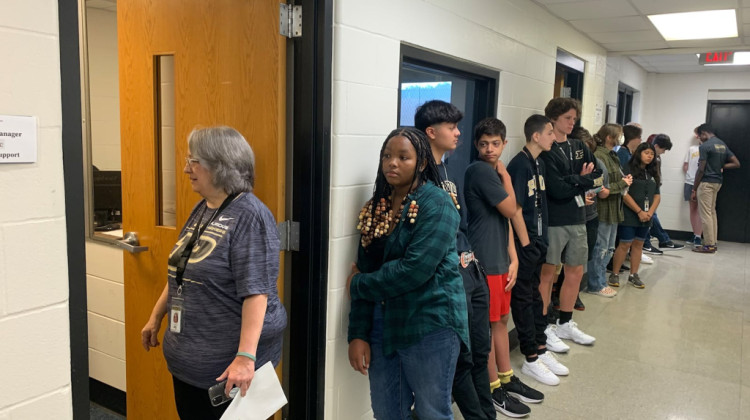
State data released Wednesday show 3.6% of third graders who took the 2025 IREAD did not pass and did not qualify for an exemption.
PixabayAbout 3,000 Indiana third graders are repeating the grade this fall under a new state law that ties promotion to a reading test. It’s the most students retained since Indiana began tracking elementary reading proficiency.
State data released Wednesday show 3.6% of third graders who took IREAD last spring did not pass and did not qualify for an exemption. This is the first year the state has strictly enforced the retention rules, which are intended to ensure students can read proficiently before advancing to fourth grade.
Indiana leaders had anticipated that even more students would be held back, but passing rates on the test jumped last school year.
The IREAD assessment measures whether students have mastered basic reading skills, such as decoding words and understanding text. Students who do not pass can still be promoted if they qualify for a “good cause exemption.” Last school year, nearly all of those exemptions were for students with disabilities or for students who are new English learners with less than two years of support services.
Secretary of Education Katie Jenner said educators had expected far more students to be retained when the law took effect.
“During legislative session, a lot of the numbers ranged between 7,000 and 10,000,” Jenner said of earlier estimates, during Wednesday’s meeting of the Indiana State Board of Education. “Huge shout out to our teachers and our people — we have thousands of kids who are now readers.”
The retention data comes on the heels of a surge in IREAD proficiency amid a statewide push that tightened the promotion law and expanded evidence-based teacher training. Just over 87% of third graders passed last school year — the highest rate since before the pandemic and a nearly 5 percentage point jump from the prior year.
More than 84,100 third graders were tested last school year. The new retention data shows:
- About 8% of students, or 6,950, received a good cause exemption allowing promotion to fourth grade.
- 3.6% of students, or 3,040, were retained in third grade for additional reading support.
- Nearly 75% of exemptions were for students in special education and 24% were for English learners with less than two years of language instruction.
The new retention law builds on Indiana’s broader push to improve reading instruction. All second graders now take the IREAD assessment, giving them multiple opportunities to pass before fourth grade. Students who fail in third grade can retest during summer school with teachers trained in the science of reading, an approach emphasizing phonics, fluency, vocabulary and comprehension.
Any student who does not pass IREAD in third grade, including those promoted with a good cause exemption, retests each spring and summer until they pass or enter seventh grade.
The state will soon release a public dashboard to track retention and exemption data. A move that officials said increases transparency and helps schools target support.
Anna Shults, the state’s chief academic officer, told the board that the policy shift reflects a balance between holding schools accountable and giving students extra support and multiple opportunities to pass the test.
“There needs to be recognition that we’ve had policy shift in our favor,” Shults said. “It allows what superintendents, principals and educators are doing in their classrooms to make this movement a little easier.”
While the number of students repeating third grade is far below initial projections, state leaders said they plan to monitor the group closely to ensure those children receive adequate reading help and make progress before advancing.
“Every one of those 3,000 is a kid, a human being, with a teacher who is awake at night because of the struggles that students may feel,” Shults said. “It’s our responsibility to ensure that a teacher is armed with what they need.”
The 2026 IREAD testing window is March 2-13.
Eric Weddle is WFYI's education editor. Contact Eric at eweddle@wfyi.org or follow him on X at @ericweddle.
 DONATE
DONATE






 Support WFYI. We can't do it without you.
Support WFYI. We can't do it without you.